Flooding threats, deferred maintenance have two Detroit museums seeking millage
Note: An earlier headline for this story incorrectly stated three museums are seeking the millage. The headline has now been updated to correctly reflect the two institutions seeking the millage.
Leaders of the Charles H. Wright Museum of African American History and the Detroit Historical Society say their institutions are in dire need of taxpayer funding to continue operating, and legislation that would allow a millage proposal across two counties is advancing toward a vote.
House Bill 4177 and Senate Bill 136 would create the History Museums Authority Act. As written, the legislation would allow the The Wright and the Detroit Historical Society to ask Wayne and Oakland County voters to levy a maximum 0.4-mill tax for up to 20 years.
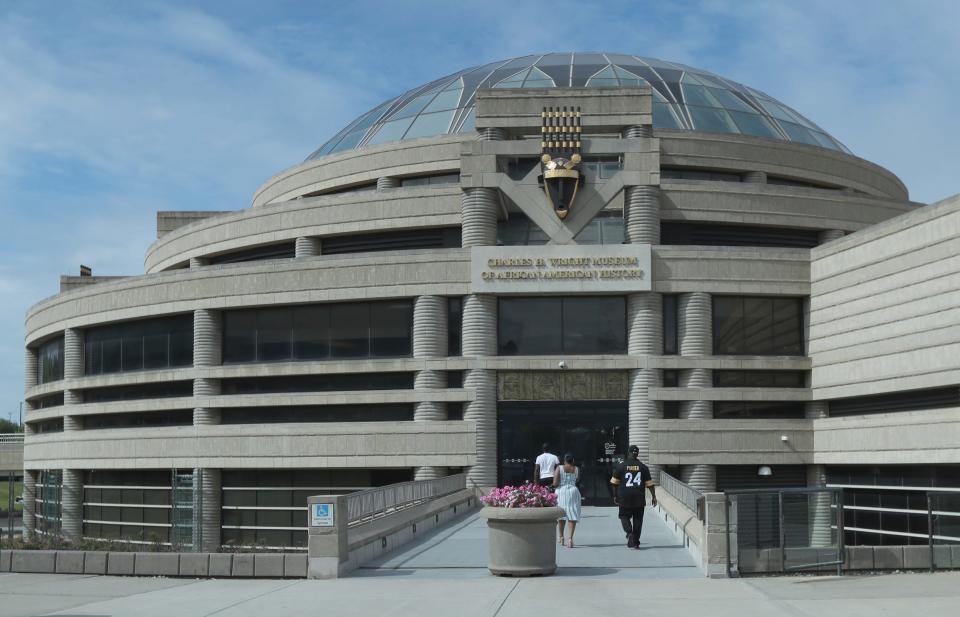
Lawmakers in the Michigan House of Representatives could vote on HB 4177 soon — the bill passed through committee in September. The Senate version of the legislation hasn't been taken up in committee yet.
A millage of 0.4 mills would translate to $40 a year for the owner of a home worth $200,000.
Similar funding mechanisms exist for both the Detroit Zoo and the Detroit Institute of Arts. The zoo’s millage is set at 0.1 mills, and is set to expire in 2027. The DIA millage, renewed by voters in 2020, is 0.2 mills and has generated an estimated $300 million in revenue for the museum since its launch in 2012.
Members of the House Committee on Regulatory Reform voted 9-1 Sept. 19 to advance HB 4177 to the full House floor for a vote.
“Our work at the Detroit Historical Society is to tell the entire Detroit region’s story, our truths, and why they matter,” said Elana Rugh, president and CEO of the Detroit Historical Society, during a Sept. 12 committee hearing. “And we tell Detroit’s stories through our two museums.”
'The math doesn’t work right now'
Wright President and CEO Neil Barclay pointed to decades of deferred maintenance, putting the museum in a precarious position.
“The Wright has been in this building almost 30 years,” Barclay said. “We have about $30 million worth of deferred maintenance — and that’s if you could write the check for it today. And the way that construction costs are now, it’s more expensive every day. Our roof has this dome that’s the center of our building, and it really puts stress on an HVAC system, hot or cold, because it's glass. Our HVAC system is too far in the weeds, and it’s not going to last much longer. We had three chillers, but we’ve been operating on one for almost two and a half years. If that goes out — no heat, no cooling.
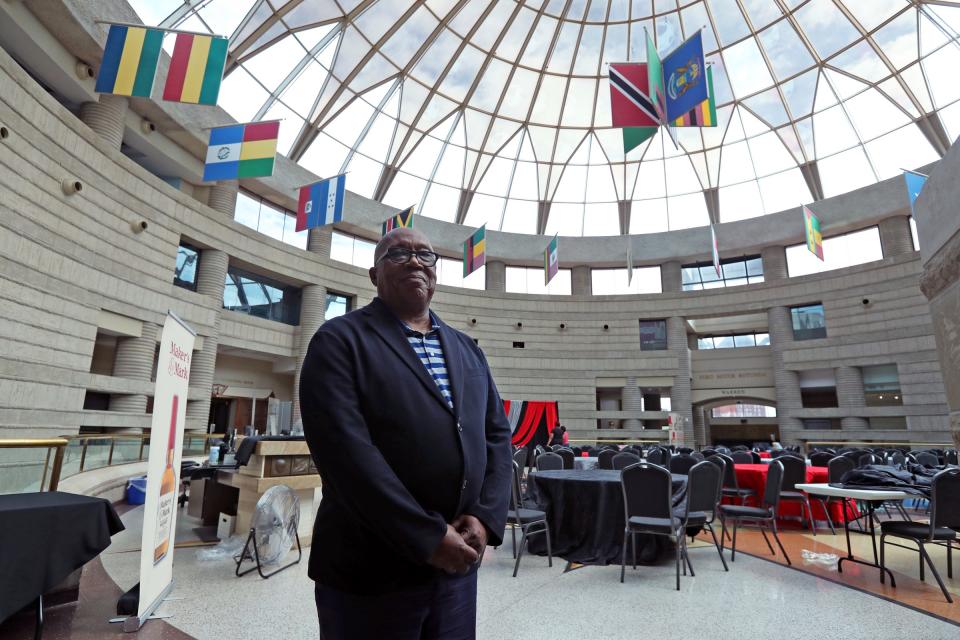
“The elevator is 30 years old; they don’t make the parts for that elevator anymore. It could go down at any time. We went out to do some repairs on the bridge that enters the building from Farnsworth Avenue and found that it had cracks and could have collapsed, so we had to reinforce that bridge using a lot of money we weren’t planning on dedicating to that.”
Barclay also referenced 2021 flooding that put 4 feet of water into the museum’s lower level, which houses its large collection of art and artifacts. The flood damage necessitated the collection’s removal to off-site storage, another ongoing expense for the last two and a half years. To bring the collection back to the museum, the lower level must be extensively retrofitted.
“So,” he said, “all of these things have sort of combined, and we really do need to think about another way of financing if we’re serious about having this asset in perpetuity. We’re really just trying to solve a simple problem: The math doesn’t work right now, and we need to find some other solutions, some other sources of revenue, to really make us sustainable long term.”
More: Detroit's Charles H. Wright Museum gets $1.8M in federal funds for renovations
This week, $1.8 million in federal funds from the American Rescue Plan Act was marked to go toward a $5 million redesign of the Wright's General Motors Theater, which will feature new technology and expanded capacity for theater, spoken word, film and various performance types. Museum officials said those funds don't affect the millage ask.
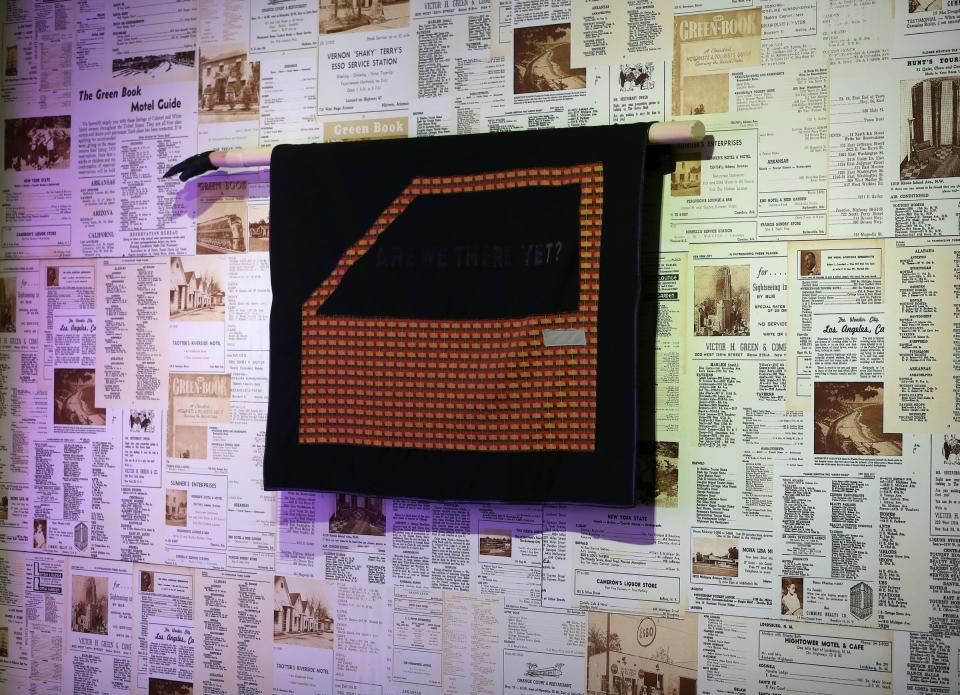
And what happens if the millage push is not successful?
“We’ll just continue on as we have been the last five years,” he said. “Get a little bit of money from here, a little bit of money from there, and sort of piece it together.
“But all we need is one major failure, and the museum closes.”
'Band-Aids on gaping wounds'
Rugh said the Detroit Historical Society, which operates the Detroit Historical Museum in Midtown and the Dossin Great Lakes Museum on Belle Isle, lost over a million dollars during the COVID-19 pandemic and has operated on the same $4.5 million budget since at least the early 1990s.
“There’s deferred maintenance for our buildings, which are aging,” she said. “The Dossin Great Lakes Museum was built in 1963, for instance. But, in particular, the care of the collection is what we’re really concerned about. The magnitude and size of the collection and its importance to the whole region can’t be overstated.”
DHS Chief Strategy and Marketing Officer Rebecca Salminen Witt elaborated.
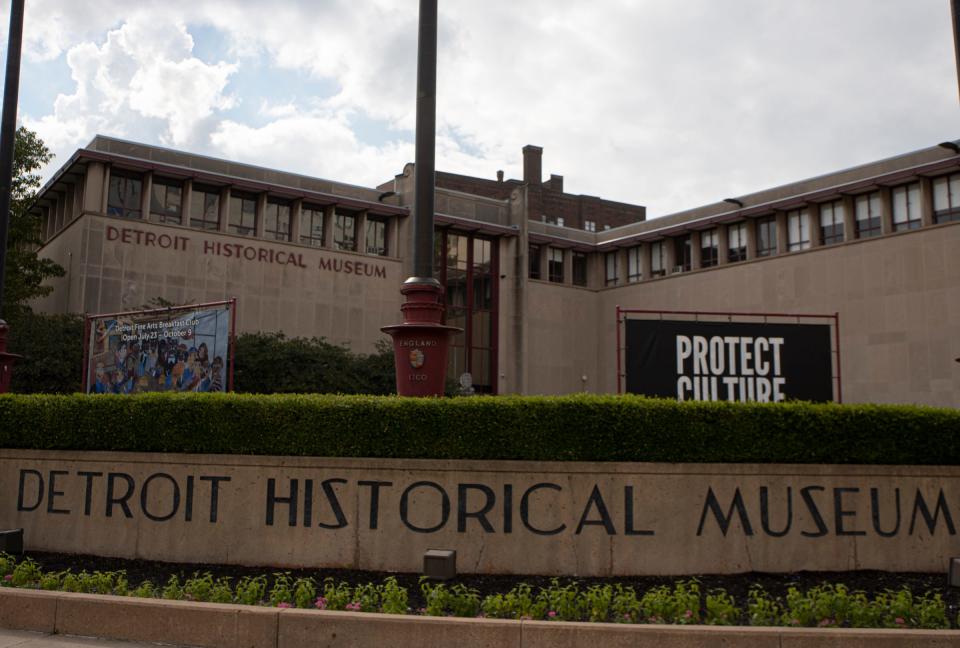
“We have artifacts in three different buildings, all in various degrees of OK-ness. One is a wood frame building on the shores of a river in the country. There are natural perils like weather and the rising river and all of that in play, which for the collection is significant. And it’s a World War II-era building that really hasn’t had much done to it since World War II. We could shore up the building, but I think the smart thing to do might be to rehome the collection to get it further away from the river and more accessible to the community.”
Salminen Witt said the historical museum also suffered damage during the 2021 flooding.
“We’ve also had significant roof issues, we have humidity issues, and we’re constantly putting Band-Aids on gaping wounds,” she said. “When you talk about a leaky roof over a collection of 300,000 artifacts, you start to understand quickly the scale of the problem. We make repairs as money is raised, but then something happens, like someone breaks in and steals all the electrical wiring, so you’re starting all over again.
“These artifacts are the people’s memories. These are their stories, and they’re the stories of the region, so they are literally irreplaceable. We have a commitment to care for these things in perpetuity; we’ve been charged with that duty by the city. Everybody’s family story starts in Detroit in some way, and we take that very seriously.”
And if a millage doesn’t pass?
“We continue doing what we do,” said Salminen Witt, “limping along and looking for another long-term solution,. We know that we have to have a game changer, and this is the one that makes the most sense. If the millage were to happen, that would forever change the trajectory of both these institutions.”
Rugh agreed.
“A millage at any level,” she said, “would ensure that 100 years from now, our kids and our grandkids and their grandkids will still be able to come here and hear the stories."
What’s next?
State Rep. Tyrone Carter, D-Detroit, introduced the House version of the legislation. State Sen. Sylvia Santana, D-Detroit, introduced the Senate bill and previously said efforts to advance the legislation through are ongoing.
“I think museums are part of the core of our being,” Santana said. “They tell the story of who we are as Americans, so I think that it's important that we preserve that history.”
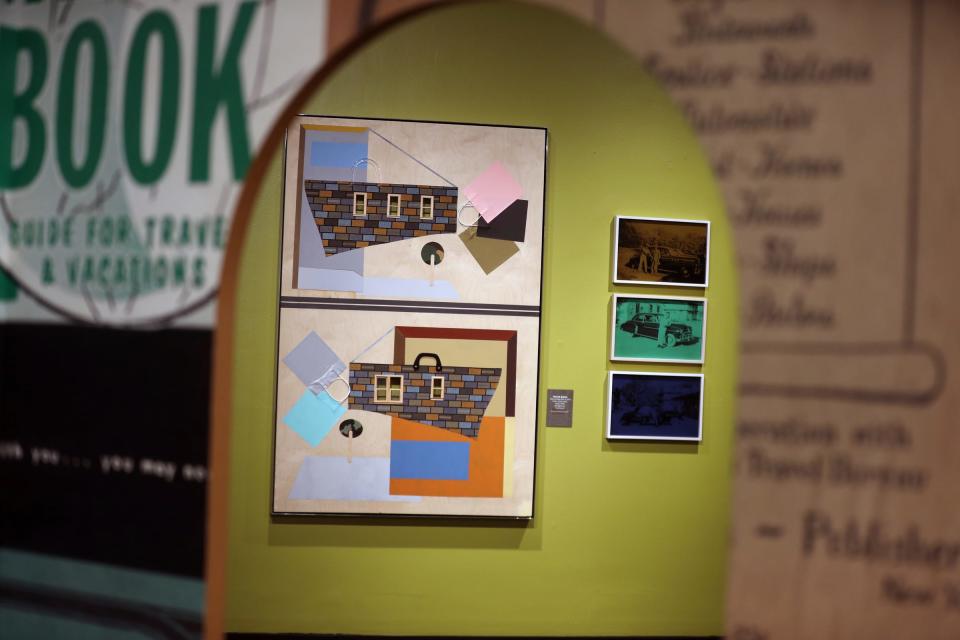
Santana said lawmakers are still in discussions with Wayne County to determine the best possible language to place on a ballot.
"We have documented capital improvement needs upwards of $30 million dollars," said Barclay, "in addition to recurring maintenance costs and long-term museum improvement and sustainability plans. Rep. Carter's millage proposal allows county history museum authorities to generate up to 0.4 mils, but ultimately, how much of that goes to Detroit's history museums is determined by those county history museum authorities."
Under one proposal, a vote of 0.23 mills would deliver $11.5 million per year to the Detroit Historical Society and $17.25 million to the Wright, which would allow for enhanced programming as well as free admission and tours for residents at both museums. It would also allow maintenance to be brought up to date, collections to be secured, staff to be shored up and financial reserves replenished.
A vote of 0.33 to 0.4 mills would do all of the above, plus allow for both museums to enhance their infrastructures and would achieve long-term sustainability for both, bringing in $16.5 million annually for DHS and $24.7 million for the Wright.
The city of Detroit owns the assets of both institutions and will continue to provide funds as well to care for those assets and, when possible, support operations, officials said.

“Frankly, the city just cannot afford to fund us at the level we need to be the world-class institutions that this amazing city deserves," said Rugh.
The millage could also benefit other historical institutions. If the amount levied were to exceed the needs of both museums, Wayne and Oakland counties would have discretion to use the surplus funds to benefit other qualifying historical organizations. The Wright and DHS would also increase their support for neighboring institutions by lending artifacts, technical support and curatorial expertise.
Similar legislation was introduced in the previous legislative session in 2021. The bill advanced out of a Senate committee, but never saw a vote on the full Senate floor. Santana is hopeful the legislation will advance further this time, and noted lawmakers are also considering ways to include funding for the arts in the ongoing budgeting process.
“We want to make sure that we are looking at our arts and our historical museums and those locations that can attract people to Michigan, as well to learn about some of our history here,” she said.
Free Press City Hall reporter Dana Afana contributed to this report.
Contact Free Press arts and culture reporter Duante Beddingfield at dbeddingfield@freepress.com.
This article originally appeared on Detroit Free Press: Detroit's Wright, historic museum say they need millage to stay afloat

